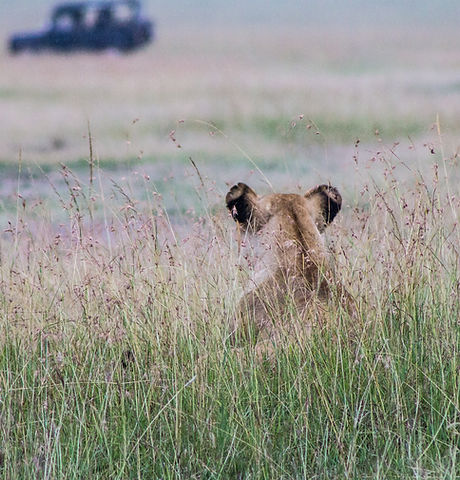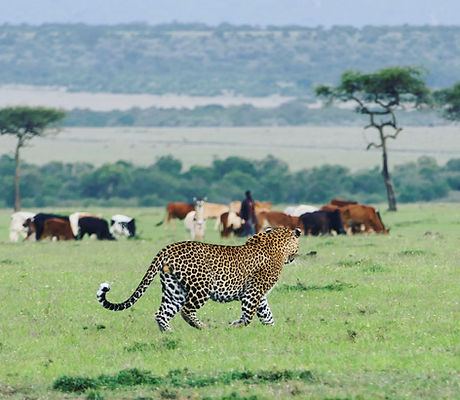

SEMINARS FOR DEVELOPMENT & CONSERVATION STRATEGISTS
ARE YOU LOOKING TO BOOST YOUR STAFF’S PROJECT TECHNICAL AND DESIGN CAPABILITIES?
For 2018 MTC is offering a series of 1-day seminars covering a range of core topics.
The seminars focus on ‘Best Practice Principles’ and how to translate them into ‘Best Practice Implementation’, based on in-depth experience by MTC’s expert team of locally-based trainers.’
The aim of the Seminar Series is to boost or refresh technical knowledge and project design quality in a concise format; and to keep project staff informed on latest innovations from the field.
Trainers
• Richard Hatfield, Certified Trainer, Mara Training Centre - Savory Institute
• Judy Kepher-Gona, Sustainable Travel & Tourism Agenda (STTA)
• Dickson ole Kaelo, Kenya Wildlife Conservancies Association (KWCA)
• Professor Oscar Koech, Land and Resource Management Department, The University of Nairobi. (LARMAT)

TRANSFORMING COMMUNITY OWNERSHIP & GOVERNANCE
Many projects focus on structural transformation – eg better markets, water supply, governance structures – without designing for the necessary social transformation needed to ensure lasting results. This seminar focuses on how to design appropriate social transformation into projects using adult learning principles, together with the role of and skills needed by project staff, using practical frameworks, examples and role play. It also introduces effective models for community organisation and ownership focusing on best practice governance, management and leadership structures using community, conservancy, and enterprise examples throughout Kenya.

LAND & WATER REGENERATION
The overriding trend in rangelands is of continuing degradation; at the same time, the knowledge for land and water regeneration exists, but is poorly disseminated. This seminar first focuses on ‘eco-literacy’: understanding the 4 basic ecosystem processes that determine the health and productivity of any ecosystem, and how they can be readily enhanced to significantly increase forage and water availability. It then addresses the mechanics of overgrazing, its elimination, and specific tools or management techniques at hand to regenerate grassland; applied through planned grazing . It also demonstrates how to develop sustainable dry and wet season grazing plans suited to community design and implementation. Finally, it is demonstrates methods for both simple and comprehensive biological monitoring.

ENABLING LIVESTOCK COMMERCIALISATION
Commercialisation of livestock is an important emerging trend in rangelands. Using practical examples based on development of livestock value chains by our partner Mara Beef and the communities it sources from, this seminar explores both the husbandry and breeding aspects of commercialisation, market access and benefits, risks, and what that means for herd and land management. The focus is not only on best practices and outcomes, but on the necessary underlying social processes that enabled them. Practical examples include community-led collective development of community trading and improved breeding herds in Mara and elsewhere.

DESIGNING SUSTAINABLE TOURISM
Tourism continues to represent a viable enterprise for rangeland communities; however there are also many obstacles, pitfalls and challenges. This seminar focuses on identifying the pillars for sustainable tourism and examining best practices for achieving them. These include processes for arriving at equitable agreements, based on common interests; effective interpretation by all players; developing tourism codes of conduct; and aligning sustainable tourism with community sustainable development goals.

THE LIVESTOCK / WILDLIFE INTERFACE
This seminar focuses on the various aspects of living with and benefitting from wildlife; from how to form and operate a conservancy, to grazing management for both, disease management, wildlife monitoring, mitigating against human-wildlife conflict, and how to maximise returns in a mixed livestock – wildlife system. It draws on extensive examples mainly from the Mara ecosystem conservancies.

MANAGING COMPLEXITY
It is increasingly recognised that social, ecological and economic systems cannot be separated, and that changes in one will often produce unintended (often negative) consequences. This seminar teaches methods to demonstrate these principles. It then explores practical frameworks that identify and incorporate complexity, to assist improved project design. Specific key methods include community situational self-assessment, visioning, strategic priority areas, and action planning to realise community goals; assessed and reviewed in conjunction with project design. Examples are drawn from extensive experience working with pastoral communities all over Eastern Africa eg Rendille, Turkana, Dassanach, Maasai, Borana.
